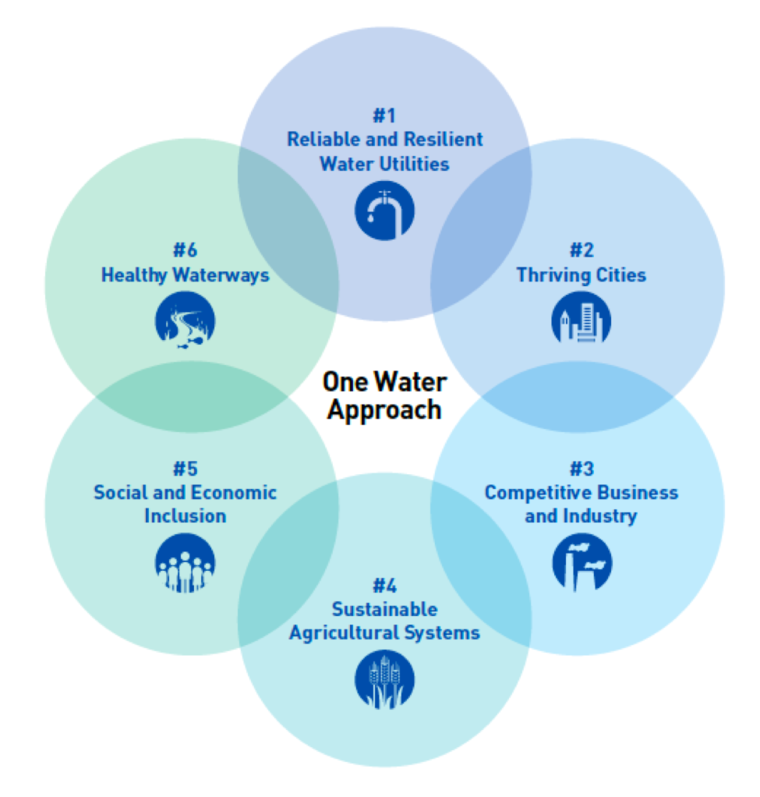
The Circular Water Economy: Wastewater as a Resource
Introduction
The concept of the circular water economy plays a crucial role in sustainable water management. It emphasizes the importance of viewing wastewater not as a waste product but as a valuable resource. The topic of the circular water economy and wastewater as a resource is highly relevant in addressing global water scarcity and environmental challenges.
Historical Background
Throughout history, wastewater management has evolved significantly. Initially, the traditional approach focused on the treatment and disposal of wastewater without considering its potential as a resource. However, there has been a shift towards recognizing wastewater as a valuable resource that can be reused. This shift has led to the exploration of innovative methods for wastewater treatment and resource recovery.
Key Concepts and Definitions
The circular water economy is based on the principles of reducing, reusing, and recycling water. It aims to close the loop in water management by minimizing water wastage and maximizing the utilization of available resources. Wastewater reuse is a key concept in the circular water economy, referring to the process of treating and repurposing wastewater for various applications. Terms such as water reclamation, water recycling, and water recovery are used to describe different aspects of wastewater reuse.
Main Discussion Points
Wastewater Treatment and Resource Recovery:
Various technologies and processes are employed in wastewater treatment to remove contaminants and transform wastewater into valuable resources. These resources include reclaimed water, which can be used for irrigation, industrial processes, and even potable water replenishment. Additionally, wastewater treatment can yield valuable nutrients and energy. Innovations in resource recovery from wastewater have led to the development of technologies that extract nutrients for agricultural use and generate energy through anaerobic digestion.
Applications of Wastewater Reuse:
Reclaimed water finds numerous applications, ranging from irrigation in agriculture to industrial processes and even replenishing potable water supplies. The use of reclaimed water offers several benefits, such as reducing pressure on freshwater sources and increasing water availability for various sectors. However, challenges such as public acceptance, regulatory compliance, and potential health risks must be addressed for successful implementation. Numerous successful case studies around the world demonstrate the viability and benefits of wastewater reuse.
Policy and Regulatory Framework:
Supportive policies and regulations are crucial for promoting the circular water economy and wastewater reuse. Existing policies and regulations related to wastewater management and resource recovery need to be analyzed to identify best practices and lessons learned. Countries or regions with well-established regulatory frameworks can serve as examples for others looking to create supportive policies for wastewater reuse.
Case Studies or Examples
Case studies and examples of successful wastewater reuse projects from different parts of the world highlight the benefits, challenges, and lessons learned. These examples showcase innovative approaches, technologies, and partnerships in wastewater reuse. They demonstrate the potential of wastewater as a resource and the positive impact it can have on water sustainability.
Current Trends or Developments
Recent trends in wastewater treatment and resource recovery include advancements in technology and innovative approaches. These developments aim to improve the efficiency and effectiveness of wastewater treatment and maximize the recovery of valuable resources. Ongoing research efforts contribute to the understanding and advancement of the circular water economy and wastewater reuse.
Challenges or Controversies
Widespread adoption of wastewater as a resource faces challenges and barriers. These include concerns about the health and safety aspects of wastewater reuse. Addressing these concerns through appropriate treatment processes and risk assessments is essential. Economic, social, and cultural factors also play a role in the implementation of the circular water economy, as they influence public acceptance and behavior.
Future Outlook
The future implications of the circular water economy and wastewater reuse are promising. Advancements in technology and policy can further drive the adoption of wastewater reuse. Public awareness and education will play a vital role in shaping the future of the circular water economy. With continued efforts, wastewater reuse can contribute significantly to addressing water scarcity and achieving sustainable water management.
Conclusion
The circular water economy and wastewater reuse offer a sustainable solution to water scarcity and environmental challenges. By recognizing wastewater as a valuable resource and implementing the principles of the circular water economy, we can achieve efficient water management. Emphasizing the potential benefits and addressing the challenges associated with wastewater reuse is crucial for its widespread adoption.